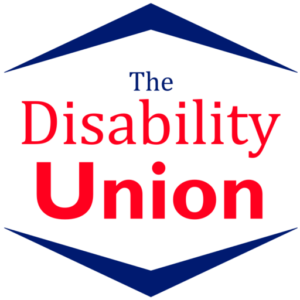
In the last article, we discussed some benefits of hiring people with disabilities. Now, let’s go one step further and hire someone with a disability. Accessibility is an important part of the hiring process to get right from the start, because if it isn’t accessible you won’t be getting any applicants with disabilities. Think of the application process like a storefront: If your shop has three steps in front to get in, how are people with mobility issues going to get in to shop? In this article, we are going to go over a few ways you can go about making the process of hiring someone with a disability accessible.
The Application
The application is the first step in hiring someone, and is usually the first barrier of entry. There are many things that people just take for granted because they’ve always been able to do it, such as typing or using a mouse. If someone is visually impaired, are they able to use their screen-reading software? If they have dexterity issues, are there a bunch of tiny boxes they need to click on? Is there a lot of typing involved, and can they use their speech-to-text software to fill it out?
These are all things not many people think about until it becomes an issue for them personally, but it can mean that someone isn’t even able to apply. These barriers can keep someone who is qualified for the position from being able to apply. They may require certain accommodations (which we will talk about in a minute), but they are still qualified for the position, or they wouldn’t be applying.
The Interview
Now that you’ve got your application designed so that anyone regardless of ability can fill it out, and you have your pool of applicants (both disabled and abled), let’s talk about the interview. What does your interview process usually look like? Is it in person? Do you speak over the phone? Both?
In Person Interview
If your interview is in person, you should make sure the location of your interview is accessible. If you’re doing interviews at your office where the applicant will be working if they get hired, this is extra important. Here are a few things to think about in terms of accessibility:
- What is the accessible parking like?
- Are there ramps to get to the door?
- Are the doors to get into the building automatic or might they need help getting in?
- Is your office set up so a wheelchair/scooter/walker/cane can maneuver with minimum hassle?
Phone/Remote interviews
If you are hiring someone to work remote, or a phone or skype interview is part of your interview process, there are things to consider:
- For deaf/hard of hearing applicants, do they have a way of communicating remotely (such as TTY)
- If you usually do a skype/video interview, how might that be affected if the applicant is visually impaired?
These sorts of things are often overlooked and can mean the world to an applicant with a disability. Knowing the employer is willing to be accommodating is a huge deal to someone who is disabled.
Reasonable accommodations
Okay, you’ve had interviews and have a list of people you want to hire. After you extend the offer to someone, then you can inquire about any reasonable accommodations they might need because of their disability. The key word here is reasonable. It’s also important to note that in America it is illegal to ask this before extending a concrete offer. As defined by the ADA: “A reasonable accommodation is any change to the application or hiring process, to the job, to the way the job is done, or the work environment that allows a person with a disability who is qualified for the job to perform the essential functions of that job and enjoy equal employment opportunities. Accommodations are considered “reasonable” if they do not create an undue hardship or a direct threat.” Reasonable accommodations can include, but are not limited to:
- A special keyboard/mouse to help with limited mobility
- Dictation software/other software
- Flexible start/end times to accommodate transportation (This does not mean fewer hours worked, just when) as long as the job requirements are met
- Adjustable desk for wheelchairs/scooters
- Grab bars in the office restrooms
Most likely, your new hire will have a good idea of what they are going to need to be successful. It’s very important to note, however, that their disability might change over time, and require new needs. Reasonable accommodations aren’t a one-and-done thing.
Hiring someone with a disability can seem overwhelming when you think about all of the things you need to do to make the process accessible, but the benefits will outweigh the headache. The effort alone will speak volumes, and your accessibility will improve the more you work at it. Even people who have disabilities will sometimes miss things, as everyone’s disability is different and requires different needs. Do you have any tips for hiring people with disabilities? If you are disabled, what’s one thing you wish employers knew when hiring? Comment below!


